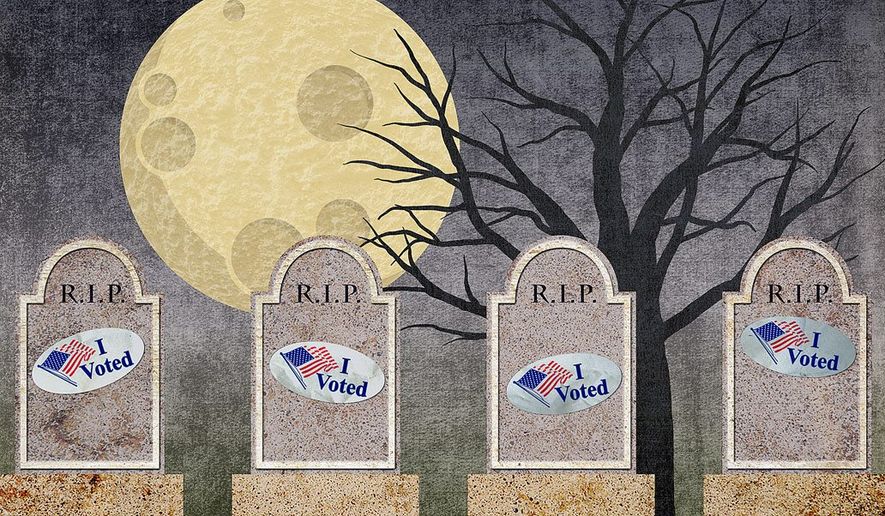OPINION:
Virginia Gov. Glenn Youngkin issued an executive order last week preventing dead people and illegal immigrants from voting in his state. Codifying election integrity measures is the sort of routine work every state’s chief executive is supposed to undertake with an important election less than 90 days away, but failure to do so has consequences.
Last year, the Old Dominion identified and deleted the names of 79,867 dead people from the state’s voter rolls. Likewise, between January 2022, when the Republican took office, and last month, 6,303 noncitizens were on the voter list. They’ve been purged.
A handful of ineligible voters can make the difference between victory and defeat in a tight election. In addition to the presidential candidates vying for Virginia’s 13 electoral votes, there’s a Senate race between incumbent Democrat Tim Kaine and his Republican challenger, Navy veteran Hung Cao. Eleven congressional seats are also up for grabs.
Other governors, county executives and mayors — regardless of party — should follow Virginia’s lead to the extent that their state’s laws authorize them to do so.
A few are doing just that. Nevada’s Clark County last week moved some 102,000 voters to “inactive” status as part of voter-roll maintenance before the November election, a county spokesman announced. According to KLAS-TV, the CBS affiliate in the Las Vegas suburb of Winchester, “inactive voters are removed when the county registrar determines the voter is registered at an invalid address or no longer lives in the county.”
It’s coincidental that the scrubbing of Clark County’s list happened just before Mr. Youngkin’s executive order, but Nevada’s Republican governor, Joe Lombardo, was the county sheriff for eight years before becoming governor in 2023.
“The Virginia model for election security works. This isn’t a Democrat or Republican issue, it’s an American and Virginian issue,” Mr. Youngkin said, adding: “We use 100% paper ballots with a strict chain of custody. We use counting machines, not voting machines, that are tested prior to every election and never connected to the internet.”
The governor also noted that Virginia doesn’t do mass mailing of ballots and that it monitors drop boxes 24/7. It is also one of just three states requiring a Social Security number to register to vote, creating a significant hurdle for those who seek to register noncitizens — something officials in the District are encouraging for “local” elections.
Democrats and other liberals reflexively assert that election integrity measures disproportionately affect minority communities and are intended to suppress voter turnout among groups more likely to vote Democratic.
It’s patronizing to suggest minorities are incapable of navigating the one-and-done process of obtaining valid government identification — an essential document required for air travel, picking up a prescription from the pharmacy or attending a Kamala Harris campaign event. It’s not as though voters have to obtain a new ID every time there’s an election.
Mr. Youngkin’s purge will mitigate unwise measures implemented by a Democratic-controlled Virginia General Assembly that gratuitously extended early voting to 45 days before Election Day and expanded voting by mail — changes tailor-made for those with rigging the vote on their mind.
It remains to be seen how well Mr. Youngkin’s election integrity directives will be at rendering Virginia’s vote “too big to rig,” but voters in other states should insist on equivalent measures to ensure a fair election.




Please read our comment policy before commenting.